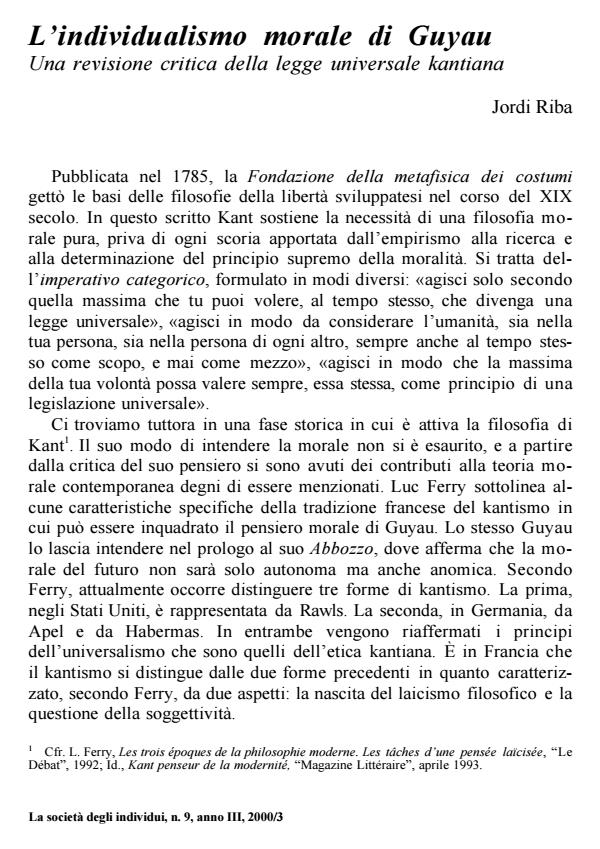L'individualismo morale di Guyau. Una revisione critica della legge universale kantiana
Journal title SOCIETÀ DEGLI INDIVIDUI (LA)
Author/s Jordi Riba
Publishing Year 1 Issue 2000/9
Language Italian Pages 12 P. File size 43 KB
DOI
DOI is like a bar code for intellectual property: to have more infomation
click here
Below, you can see the article first page
If you want to buy this article in PDF format, you can do it, following the instructions to buy download credits

FrancoAngeli is member of Publishers International Linking Association, Inc (PILA), a not-for-profit association which run the CrossRef service enabling links to and from online scholarly content.
Guyau takes up Kant’s universalism again and tries to ground it from an empirical position, getting as a result the permanence of the obligation, which he separates in 5 equivalents. Guyau considers that Kantian autonomy has an excess of theological connotations, since there is still a reference to the realm of ends in it. He also believes that Kantian autonomy, in its form of universalism, restrains the individual too much. Guyau’s proposal, instead, entails what he called anomical theory of moral, which contains anitcipating elements of what, after the return of the normative principles in ethical theories, occurs to be named moral of the minimal exigencies. jriba12@yahoo.com
Jordi Riba, L'individualismo morale di Guyau. Una revisione critica della legge universale kantiana in "SOCIETÀ DEGLI INDIVIDUI (LA)" 9/2000, pp , DOI: